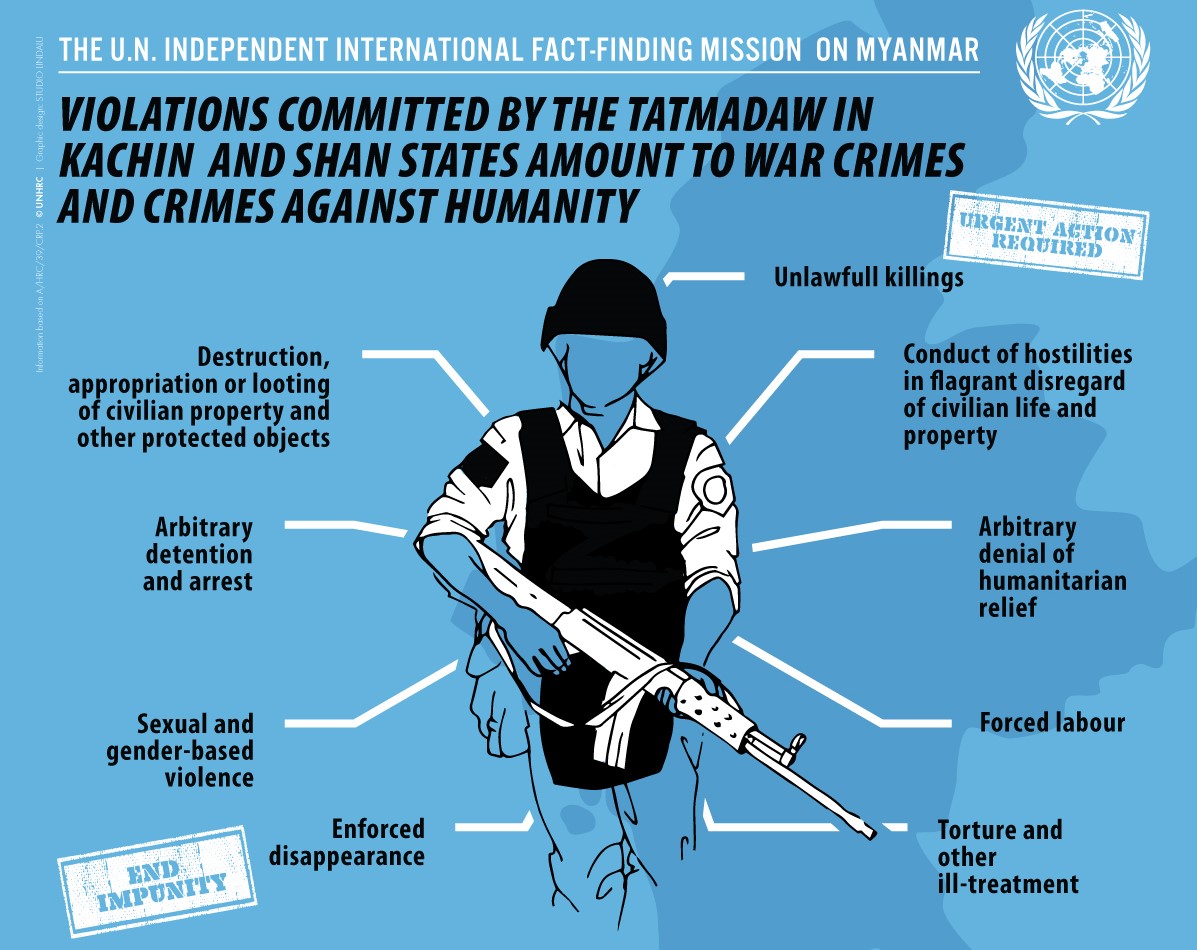Report of the detailed findings of the Independent International Fact-Finding Mission on Myanmar – A/HRC/39/CRP.2.
1718. All social media platforms active in Myanmar, including messenger systems, should apply international human rights law as basis for content moderation on their platforms. In doing so, they should respect the rights of their users to freedom of expression and to privacy. The Basic Principles on Business and Human Rights provides a baseline approach that companies should adopt. They should engage with the Office of the United Nations High Commissioner for Human Rights and existing human rights mechanisms, in particular the United Nations Special Rapporteur on the promotion and protection of the right to freedom of opinion and expression.
1719. Facebook and other social media platforms, including messenger systems, should support the existing research of the United Nations Special Rapporteur on the promotion and protection of the right to freedom of opinion and expression on online content moderation. The Mission encourages the Special Rapporteur to explore further the responsibilities of social media companies as carriers of expression that incites violence or discrimination based on race, ethnicity, nationality or religion.
1720. Facebook and other social media platforms, including messenger systems, should allow for an independent and thorough examination of the use of their platform to spread messages inciting to violence and discrimination in Myanmar. The extent to which posts and messages on its platform have led to real-world discrimination and violence should be part of such examination. Their experience in Myanmar should be examined as a situation of great concern in itself and as a case study for their global operations.
1721. All social media platforms active in Myanmar, including messenger systems, should open themselves up to public accountability and transparency. They should actively track the use of their platform in Myanmar for the spread and promotion of threats and the incitement to violence, hostility and discrimination. They should be transparent about their policies and practices to identify and remove objectionable content. They should publicly release disaggregated data regularly, including the number and type of content violations, the platform used, number of complaints received and average processing time, number of content removals, number of accounts or pages taken down or suspended.
1722. All social media platforms active in Myanmar, including messenger systems, should enhance their capacity to combat the use of their platforms for the spread and promotion of threats and the incitement to violence, hostility and discrimination. This includes hiring sufficient content moderators who are familiar with the context, background and nuances of Myanmar language and the issue of hate speech in the country, and providing them with training on human rights standards.
1723. All social media platforms active in Myanmar, including messenger systems, should retain indefinitely copies of material removed for use by judicial bodies and other credible accountability mechanisms addressing serious human rights violations committed in Myanmar in line with international human rights norms and standards, including where such violations amounted to crimes under international law.
1724. All social media platforms active in Myanmar, including messenger systems, should establish early warning systems for emergency escalation, involving all relevant stakeholders. All death threats and threats of harm in Myanmar should be treated as serious and immediately removed when detected. The early warning systems should be developed and operated transparently and in consultation with key stakeholders, including civil society organizations. It should be supported by a formal stakeholder group to provide advice and to monitor performance.
1725. All social media platforms active in Myanmar, including messenger systems, should actively assist efforts to promote tolerance, peace and the human rights of all the Myanmar people. They should ensure access of all Myanmar users to credible sources of information and alternative views, including by reviewing their advertising models to ensure that they do not adversely affect diversity of opinion and ideas. They should assist users to distinguish verified, credible news from disinformation, particularly on matters of high public interest or carrying a high risk of violence, including by cooperating with initiatives that offer fact-checking services to users.
1726. Before entering any new market, particularly those with volatile ethnic, religious or other social tensions, Facebook and other social media platforms, including messenger systems, should conduct in-depth human rights impact assessments for their products, policies and operations, based on the national context and take mitigating measures to reduce risks as much as possible.
